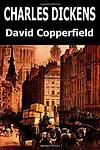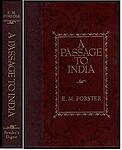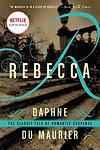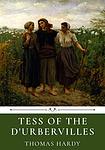The Greatest "England" Books of All Time
Click to learn how this list is calculated.
This list represents a comprehensive and trusted collection of the greatest books. Developed through a specialized algorithm, it brings together 284 'best of' book lists to form a definitive guide to the world's most acclaimed books. For those interested in how these books are chosen, additional details can be found on the rankings page.
Genres
The "England" category of books typically includes literature that is set in England or written by English authors. This category encompasses a wide range of genres, including historical fiction, classic literature, contemporary fiction, and non-fiction works about English culture, history, and society. Books in this category often explore themes such as identity, class, tradition, and the complexities of English society. Whether it's a classic novel by Jane Austen or a contemporary crime thriller set in London, the "England" category offers readers a diverse selection of books that capture the essence of this fascinating country.
Countries
Date Range
Reading Statistics
Click the button below to see how many of these books you've read!
Download
If you're interested in downloading this list as a CSV file for use in a spreadsheet application, you can easily do so by clicking the button below. Please note that to ensure a manageable file size and faster download, the CSV will include details for only the first 500 books.
Download-
1. Nineteen Eighty Four by George Orwell
Set in a dystopian future, the novel presents a society under the total control of a totalitarian regime, led by the omnipresent Big Brother. The protagonist, a low-ranking member of 'the Party', begins to question the regime and falls in love with a woman, an act of rebellion in a world where independent thought, dissent, and love are prohibited. The novel explores themes of surveillance, censorship, and the manipulation of truth.
-
2. Pride and Prejudice by Jane Austen
Set in early 19th-century England, this classic novel revolves around the lives of the Bennet family, particularly the five unmarried daughters. The narrative explores themes of manners, upbringing, morality, education, and marriage within the society of the landed gentry. It follows the romantic entanglements of Elizabeth Bennet, the second eldest daughter, who is intelligent, lively, and quick-witted, and her tumultuous relationship with the proud, wealthy, and seemingly aloof Mr. Darcy. Their story unfolds as they navigate societal expectations, personal misunderstandings, and their own pride and prejudice.
-
3. Wuthering Heights by Emily Brontë
This classic novel is a tale of love, revenge and social class set in the Yorkshire moors. It revolves around the intense, complex relationship between Catherine Earnshaw and Heathcliff, an orphan adopted by Catherine's father. Despite their deep affection for each other, Catherine marries Edgar Linton, a wealthy neighbor, leading Heathcliff to seek revenge on the two families. The story unfolds over two generations, reflecting the consequences of their choices and the destructive power of obsessive love.
-
4. Alice's Adventures in Wonderland by Lewis Carroll
This novel follows the story of a young girl named Alice who falls down a rabbit hole into a fantastical world full of peculiar creatures and bizarre experiences. As she navigates through this strange land, she encounters a series of nonsensical events, including a tea party with a Mad Hatter, a pool of tears, and a trial over stolen tarts. The book is renowned for its playful use of language, logic, and its exploration of the boundaries of reality.
-
5. Middlemarch by George Eliot
Set in the fictitious English town of Middlemarch during the early 19th century, the novel explores the complex web of relationships in a close-knit society. It follows the lives of several characters, primarily Dorothea Brooke, a young woman of idealistic fervor, and Tertius Lydgate, an ambitious young doctor, who both grapple with societal expectations, personal desires, and moral dilemmas. Their stories intertwine with a rich tapestry of other townsfolk, reflecting themes of love, marriage, ambition, and reform, making a profound commentary on the human condition.
-
6. Great Expectations by Charles Dickens
A young orphan boy, living with his cruel older sister and her kind blacksmith husband, has an encounter with an escaped convict that changes his life. Later, he becomes the protégé of a wealthy but reclusive woman and falls in love with her adopted daughter. He then learns that an anonymous benefactor has left him a fortune, leading him to believe that his benefactor is the reclusive woman and that she intends for him to marry her adopted daughter. He moves to London to become a gentleman, but his great expectations are ultimately shattered when he learns the true identity of his benefactor and the reality of his love interest.
-
7. Mrs. Dalloway by Virginia Woolf
The novel chronicles a day in the life of Clarissa Dalloway, a high-society woman in post-World War I England, as she prepares for a party she is hosting that evening. Throughout the day, she encounters various characters from her past, including a former suitor and a shell-shocked war veteran. The narrative jumps back and forth in time and in and out of different characters' minds, exploring themes of mental illness, existentialism, and the nature of time.
-
8. To the Lighthouse by Virginia Woolf
This novel is a pioneering work of modernist literature that explores the Ramsay family's experiences at their summer home on the Isle of Skye in Scotland. The narrative is divided into three sections, focusing on a day in the family's life, a description of the house during their absence, and their return after ten years. The book is known for its stream of consciousness narrative technique and its exploration of topics such as the passage of time, the nature of art, and the female experience.
-
9. Gulliver's Travels by Jonathan Swift
This classic satire follows the travels of a surgeon and sea captain who embarks on a series of extraordinary voyages. The protagonist first finds himself shipwrecked on an island inhabited by tiny people, later discovers a land of giants, then encounters a society of intelligent horses, and finally lands on a floating island of scientists. Through these bizarre adventures, the novel explores themes of human nature, morality, and society, offering a scathing critique of European culture and the human condition.
-
10. David Copperfield by Charles Dickens
This novel follows the life of its titular protagonist from his childhood to maturity. Born to a young widow, David endures a difficult childhood when his mother remarries a harsh and abusive man. After his mother's death, he is sent to a boarding school before being forced into child labor. As he grows, David experiences hardship, love, and loss, all the while meeting a colorful array of characters. The novel is a journey of self-discovery and personal growth, showcasing the harsh realities of 19th-century England.
-
11. A Passage to India by E. M. Forster
The novel takes place in British-ruled India, where the cultural divide between the British and the Indians is explored. The story focuses on the experiences of an Indian Muslim, Dr. Aziz, and his interactions with an English woman, Miss Quested, and her elderly friend, Mrs. Moore. After an expedition to the Marabar Caves, Miss Quested accuses Dr. Aziz of assault, leading to a trial that deepens the racial tensions and prejudices between the colonizers and the colonized. The novel is a critique of British imperialism and a study of the cultural and racial misunderstandings and ill-will between the British and the Indian people.
-
12. Lord of the Flies by William Golding
A group of British boys are stranded on an uninhabited island after their plane crashes during wartime. Initially, they attempt to establish order, creating rules and electing a leader. However, as time passes, their civility erodes, and they descend into savagery and chaos. The struggle for power intensifies, leading to violence and death. The novel explores themes of innocence, the inherent evil in mankind, and the thin veneer of civilization.
-
13. Tristram Shandy by Laurence Sterne
The novel is a humorous, rambling narrative that chronicles the life of Tristram Shandy. The story is filled with digressions, anecdotes, and eccentric characters, as Tristram often interrupts his own tale to interject commentary or to recount stories from his family's past. Despite the seemingly haphazard structure, the novel is a clever exploration of narrative form and a satirical critique of traditional biographies and novels.
-
14. Rebecca by Daphne du Maurier
A young woman marries a wealthy widower and moves into his large English country house. She quickly realizes that the memory of her husband's first wife, Rebecca, haunts every corner of the estate. The housekeeper's obsessive devotion to Rebecca and the mysterious circumstances of her death continue to overshadow the second wife's attempts to make a happy life with her husband. As secrets about Rebecca's life and death are revealed, the new wife must grapple with her own identity and place within the household.
-
15. The Portrait of a Lady by Henry James
This classic novel explores the life of a young, independent American woman who inherits a large amount of money and moves to Europe, where she falls into a manipulative and oppressive marriage. The story delves into themes of personal freedom, responsibility, and betrayal, as the protagonist navigates the complexities of high society, love, and the consequences of her choices.
-
16. Tess of the d'Urbervilles by Thomas Hardy
This is a tragic tale of a young woman named Tess who comes from a poor family in rural England. Tess is sent to work for a wealthy family, where she is seduced by a man who abandons her after she becomes pregnant. The baby dies, and Tess is ostracized by her community. She falls in love with a kind man, but when she confesses her past, he rejects her. Desperate and heartbroken, Tess murders her former seducer and is eventually captured and executed. The novel explores themes of fate, injustice, and the oppressive sexual morals of its time.
-
17. Vanity Fair by William Makepeace Thackeray
This classic novel follows the lives of two contrasting women, the cunning and ruthless Becky Sharp and the sweet and naive Amelia Sedley, against the backdrop of English society during the Napoleonic Wars. The book is a satirical exploration of the obsession with wealth, status, and social climbing, and the moral bankruptcy that can result from such pursuits. The narrative weaves an intricate tale of love, betrayal, and redemption, exposing the vanity and hypocrisy of high society.
-
18. Robinson Crusoe by Daniel Defoe
The book is a classic adventure novel about a man who spends 28 years on a remote tropical island near Trinidad, encountering cannibals, captives, and mutineers before being rescued. The story is noted for its realistic portrayal of the protagonist's physical and psychological development and for its detailed depiction of his attempts to create a life for himself in the wilderness. The novel has been interpreted as an allegory for the development of civilization, as well as a critique of European colonialism.
-
19. Dracula by Bram Stoker
This classic horror novel tells the story of Count Dracula's attempt to move from Transylvania to England so that he may find new blood and spread the undead curse, and of the battle between Dracula and a small group of people led by Professor Abraham Van Helsing. The narrative is composed of journal entries, letters, and telegrams written by the novel's protagonists, providing different perspectives on the gruesome events unfolding. The book touches on themes of sexuality, gender roles, and the clash of modern science with traditional superstition.
-
20. A Clockwork Orange by Anthony Burgess
This novel follows the life of a violent young man named Alex, who is part of a youth subculture in a dystopian future England. Alex and his gang engage in a nightmarish spree of rape, assault, and robbery, until he is arrested and subjected to a psychological experiment by the government to "cure" him of his violent tendencies. The novel explores themes of free will, morality, and the nature of evil, while using a unique slang language invented by the author.
-
21. Tom Jones by Henry Fielding
This classic novel tells the story of Tom Jones, a charming and good-hearted but impulsive young man, who is expelled from his adoptive family home due to his wild behavior and love for the beautiful Sophia Western. His journey through 18th-century England is filled with adventures, misadventures, and a colorful cast of characters, as he struggles with his identity and seeks redemption. The narrative explores themes of class, virtue, and morality, and is known for its humor, social satire, and vivid characterization.
-
22. Emma by Jane Austen
The novel revolves around Emma, a well-meaning but disaster-prone matchmaker, who ignores her own romantic feelings while setting out to find a suitor for her friend Harriet. Her efforts cause more problems than solutions as she leaves a trail of mishaps behind her. As her plans go awry, Emma realizes that she herself may be the one in love. The book is a classic exploration of social manners, love, and marriage in 19th-century England.
-
23. The Picture of Dorian Gray by Oscar Wilde
The novel follows the life of a handsome young man who, after having his portrait painted, is upset to realize that the painting will remain beautiful while he ages. After expressing a wish that the painting would age instead of him, he is shocked to find that his wish comes true. As he indulges in a life of hedonism and immoral acts, his portrait becomes increasingly grotesque, reflecting the damage his actions have on his soul. The story serves as a cautionary tale about the dangers of vanity, selfishness, and the pursuit of pleasure without regard for consequences.
-
24. The Canterbury Tales by Geoffrey Chaucer
The Canterbury Tales is a collection of 24 stories that follows a group of pilgrims traveling from London to Canterbury to visit the shrine of Saint Thomas Becket. Told in Middle English, the tales are narrated by a diverse group of pilgrims, including a knight, a miller, a reeve, and a pardoner, who share their stories to pass the time during their journey. The tales, which range from chivalrous romances to bawdy fabliaux, provide a colorful, satirical, and critical portrayal of 14th century English society.
-
25. The Golden Notebook by Doris Lessing
The novel centers around a woman named Anna Wulf, a writer who keeps four notebooks, each representing a different aspect of her life: her experiences in Africa, her current life in London, a novel she is writing, and her personal experiences. As Anna's mental state deteriorates, she attempts to unify her fragmented self in a fifth notebook, the golden notebook. The novel explores themes of mental breakdown, communism, the changing role of women, and the fear of nuclear war.
Reading Statistics
Click the button below to see how many of these books you've read!
Download
If you're interested in downloading this list as a CSV file for use in a spreadsheet application, you can easily do so by clicking the button below. Please note that to ensure a manageable file size and faster download, the CSV will include details for only the first 500 books.
Download























